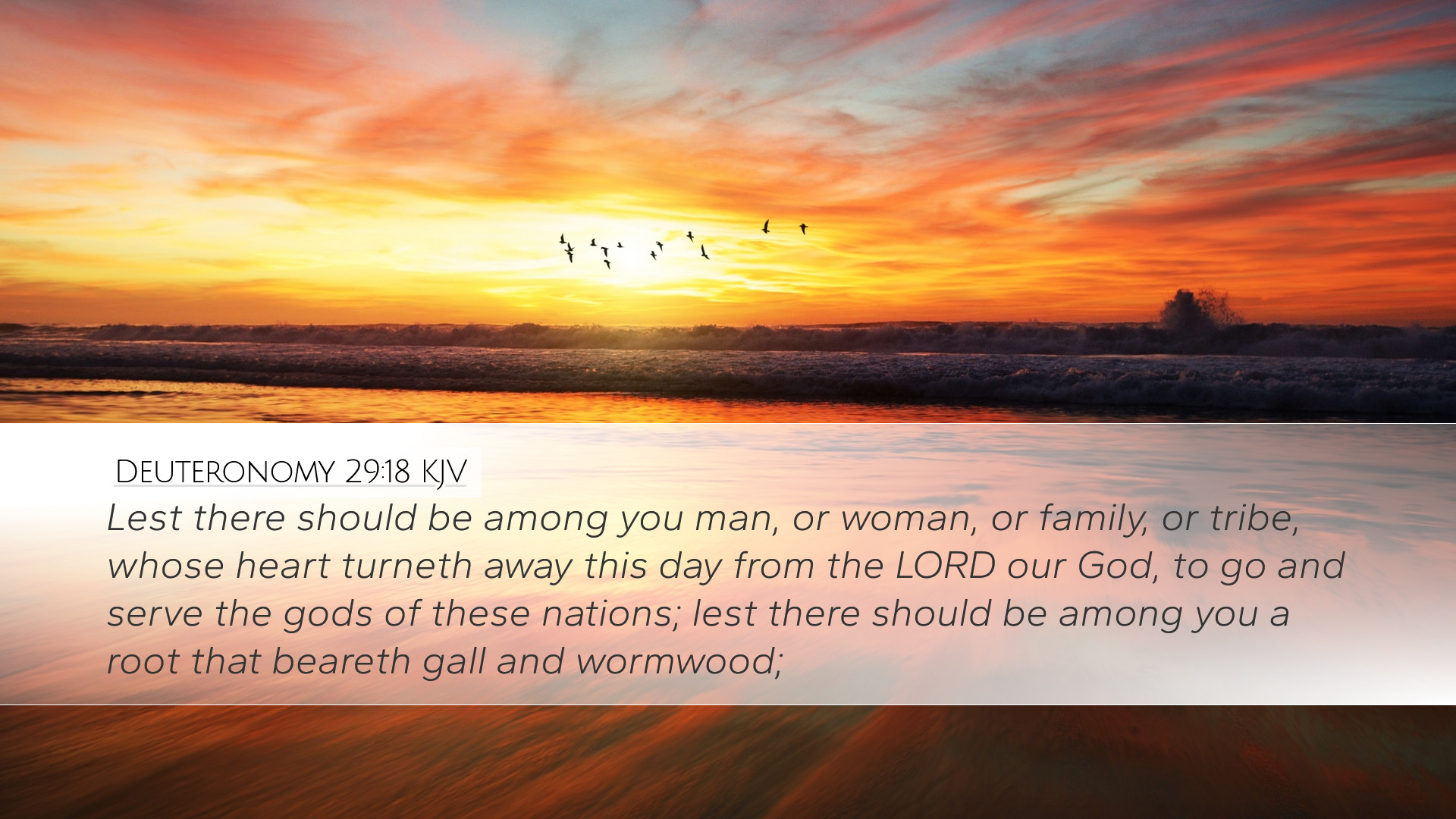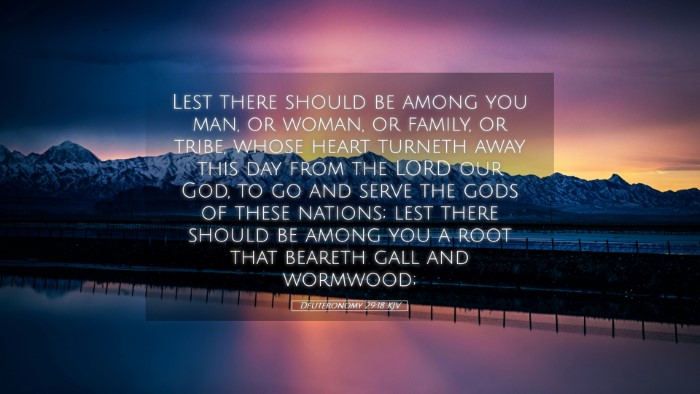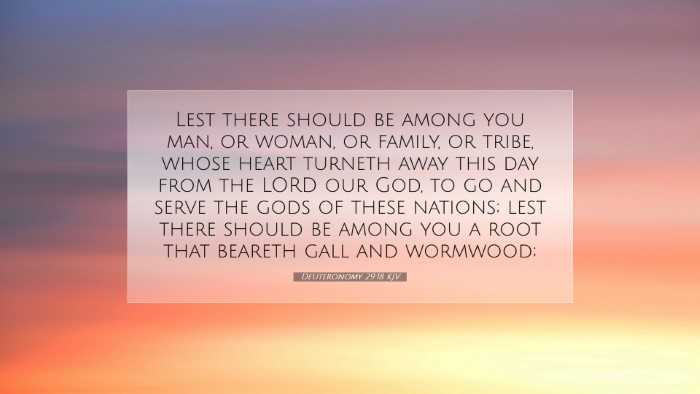Commentary on Deuteronomy 29:18
Verse Reference: Deuteronomy 29:18 - "Beware lest there be among you a root that beareth gall and wormwood."
Introduction
Deuteronomy 29:18 serves as a stern warning to the Israelites as they prepare to enter the Promised Land. In this passage, Moses highlights the dangers of idolatry and spiritual corruption that can arise when individuals or groups stray from the covenant with God. The imagery of "gall" and "wormwood" suggests bitterness and poison, encasing the spiritual implications of unfaithfulness.
Contextual Analysis
This verse occurs in a broader discourse where Moses recounts the covenant between God and Israel. It emphasizes the importance of remaining steadfast in faith and avoiding the corrupting influences surrounding them.
-
The Importance of Covenant: The covenant made at Horeb is central to Israel's identity. Moses reminds the people of their commitments and warns of the consequences of breaking them.
-
The Warning Against Corruption: The metaphor of a "root" suggests that such corruption can be deep-seated, spreading its influence to others and leading to widespread rebellion.
Insights from Matthew Henry
Matthew Henry interprets this verse as a caution against the internal dangers of the Israelites, rather than external threats. He suggests that the "root" represents false teachings and corrupted values that can arise within the community:
-
Spiritual Vigilance: Believers must remain vigilant against the subtle beginnings of sin, which can develop into larger issues affecting the entire community's faith and relationship with God.
-
Consequences of Apostasy: Henry warns that the bitterness produced by turning away from God can lead to spiritual death, affecting subsequent generations.
Insights from Albert Barnes
Albert Barnes emphasizes the gravity of the warning by highlighting that the "gall" and "wormwood" symbolize the extreme bitterness that comes from apostasy:
-
Nature of Gall and Wormwood: These terms refer to poisonous substances. Barnes stresses that instead of experiencing the blessings of God, those who allow such a root to take hold will endure severe consequences.
-
The Corporate Nature of Sin: Barnes points out that individual sins can have implications for the community. A single sinful person may corrupt many, leading to collective judgment.
Insights from Adam Clarke
Adam Clarke examines the historical implications of the verse, connecting it to Israel's journey through the wilderness and their dealings with other nations:
-
Historical Context: Clarke indicates that Israel's past experiences with idolatry are crucial to understanding this warning. The idols and practices of surrounding nations can corrupt the purity of Israel's worship.
-
The Danger of Compromise: Clarke mentions that even a small compromise can lead to spiritual decay, emphasizing that true faith is fraught with the danger of external influences.
Theological Reflections
The theological implications of Deuteronomy 29:18 extend beyond its immediate context. It raises vital questions for contemporary believers:
-
Root of Bitterness: What constitutes a "root of bitterness" today? This invites personal introspection about the attitudes and behaviors that may lead one away from God.
-
The Community's Role: How can the faith community protect itself against internal corruption? This conveys the necessity for communal vigilance and accountability among believers.
Conclusion
Deuteronomy 29:18 stands as a crucial admonition rooted in Israel's covenant relationship with God. The collective responsibility to guard against spiritual decay is emphasized through the vivid imagery of "gall" and "wormwood." Drawing on the insights from esteemed commentaries, we are reminded that vigilance in our faith walk is essential not only to preserve our spiritual integrity but also to safeguard our communities from the destructive forces of unfaithfulness.


